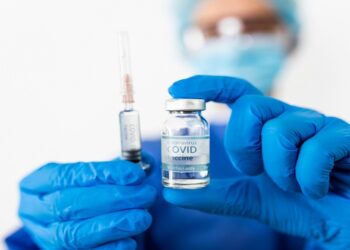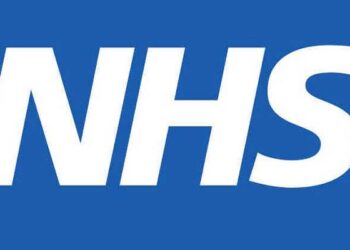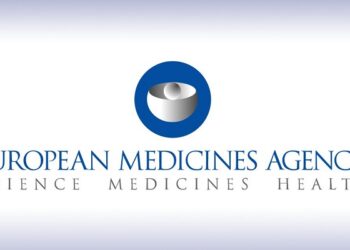First new treatment option for women in Europe in more than 15 years for most difficult to treat form of ovarian cancer
Roche (SIX: RO, ROG; OTCQX: RHHBY) announced today that the European Commission (EU) approved the use of Avastin (bevacizumab) in combination with paclitaxel, topotecan, or pegylated liposomal doxorubicin chemotherapy as a treatment for women with recurrent ovarian cancer that is resistant to platinum-containing chemotherapy.
The EU approval was based on results of the phase III AURELIA study which involved women with recurrent, platinum-resistant ovarian cancer who received either chemotherapy or Avastin in combination with chemotherapy.1 Results showed that the addition of Avastin to chemotherapy gave a clinically meaningful benefit, nearly doubling the median progression free survival (PFS) from 3.4 months to 6.7 months (HR=0.38, p<0.0001).1,2
“European approval of Avastin for recurrent, platinum-resistant ovarian cancer is good news because Avastin can help women live longer without their cancer progressing, which is an important treatment goal in advanced disease,” said Sandra Horning, M.D., Roche’s Chief Medical Officer and Head, Global Product Development. “Avastin is the first biologic medicine approved by the EU for women with this difficult to treat disease.”
Ovarian cancer has the highest mortality rate of all gynaecological cancers.3 Of the 44,000 women diagnosed each year in the European Union many will have advanced disease that will return after initial treatment.4-6 When treating recurrent ovarian cancer, the time between receiving the last dose of platinum-based chemotherapy and disease recurrence is used to help determine the choice of chemotherapy used in the next line of treatment. Patients are said to have ‘platinum-resistant’ disease if their disease worsens between one and six months following completion of their platinum-based chemotherapy, and ‘platinum-sensitive’ disease if it worsens more than six months after. A quarter of those who relapse after initial treatment, over 10,000 women a year in the European Union, will have platinum-resistant cancer, the most difficult to treat form of the disease.
This approval will enable the use of Avastin in combination with paclitaxel, topotecan, or pegylated liposomal doxorubicin for the treatment of women with platinum-resistant recurrent epithelial ovarian, fallopian tube, or primary peritoneal cancer who received no more than two prior chemotherapy regimens and who have not received prior therapy with Avastin or other VEGF inhibitors or VEGF receptor–targeted agents.
AURELIA is the fourth phase III study of Avastin in ovarian cancer to show that adding Avastin to chemotherapy significantly increased the time women with ovarian cancer lived without their disease worsening.1,7-9 In 2011, Avastin was approved in the EU as a front-line treatment for advanced ovarian cancer based on the pivotal GOG 0128 and ICON7 phase III studies. In 2012, Avastin was approved in the EU as a treatment for recurrent, platinum-sensitive ovarian cancer based on the results of the pivotal phase III OCEANS study.
AURELIA additional study results
AURELIA is a Roche-sponsored multicentre, randomised, open-label, two arm phase III study that was set-up in cooperation with the Group d’Investigateurs Nationaux pour l’Etude des Cancers Ovariens (GINECO) and was conducted by the international network of the Gynecologic Cancer Intergroup (GCIG) and the pan-European Network of Gynaecological Oncological Trial Groups (ENGOT).Study data from 361 women showed:
- Women with recurrent, platinum-resistant ovarian cancer who received Avastin in combination with chemotherapy (paclitaxel, topotecan or pegylated liposomal doxorubicin) had a median overall survival of 16.6 months compared to 13.3 months for women treated with chemotherapy alone (HR=0.87, p=0.27).1
- In addition, women who received Avastin in combination with chemotherapy had a significantly higher rate of tumour shrinkage (objective response rate, ORR) compared to women who received chemotherapy alone (28.2 percent versus 12.5 percent, p=0.0007).1
- No new safety findings were observed in the AURELIA study and adverse events were consistent with those seen in previous trials of Avastin across tumour types for approved indications.
About ovarian cancer
Ovarian cancer causes more deaths than any other gynaecologic cancer.3 It is the seventh most commonly diagnosed cancer in women worldwide, with an estimated 230,000 cases diagnosed around the world every year and there are approximately 150,000 deaths from the disease.3 In the EU, there are an estimated 44,000 cases of ovarian cancer every year, and nearly 30,000 women will die from the disease.4 Surgery to remove as much of the tumour as possible is a mainstay of treatment but unfortunately, the majority of patients are diagnosed with late stage disease (when the cancer has grown or spread) and they require further treatment.5,6,10 Ovarian cancer is associated with high concentrations of vascular endothelial growth factor (VEGF), a protein linked to tumour growth and spread.11 Studies have shown a correlation between a high concentration of VEGF and ascites development (excess fluid in the abdominal cavity), disease worsening, and a poorer prognosis in women with ovarian cancer.11 Avastin is designed to specifically target VEGF.
About Avastin – mechanism of action
An independent blood supply is critical for a tumour to grow beyond a certain size (2mm) and spread (metastasise) to other parts of the body. Tumours develop their own blood supply in a process called angiogenesis by releasing vascular endothelial growth factor (VEGF) – a key driver for tumour growth. Avastin is an antibody that precisely targets and inhibits VEGF. Precise VEGF inhibition by Avastin allows it to be combined effectively with a broad range of chemotherapies and other anti-cancer treatments with limited additional impact on the side effects of these therapies.
About Avastin – over 10 years of transforming cancer care
With the initial approval in the USA for advanced colorectal cancer in 2004, Avastin became the first anti-angiogenic therapy made widely available for the treatment of patients with an advanced cancer.
Today, Avastin is continuing to transform cancer care through its proven survival benefit (overall survival and/or progression free survival) across several types of cancer. Avastin is approved in Europe for the treatment of advanced stages of breast cancer, colorectal cancer, non-small cell lung cancer, kidney cancer and ovarian cancer, and is available in the USA for the treatment of colorectal cancer, non-small cell lung cancer and kidney cancer. In addition, Avastin is approved in the U.S. and over 60 other countries worldwide for the treatment of patients with progressive glioblastoma following prior therapy. Avastin is approved in Japan for the treatment of the advanced stages of colorectal, non-small cell lung cancer, breast cancer, ovarian cancer and malignant glioma, including newly diagnosed glioblastoma.
Avastin has made anti-angiogenic therapy a fundamental pillar of cancer treatment today. Over 1.5 million patients have been treated with Avastin so far. A comprehensive clinical programme with more than 500 ongoing clinical trials is investigating the use of Avastin in over 50 tumour types.
About Roche
Headquartered in Basel, Switzerland, Roche is a leader in research-focused healthcare with combined strengths in pharmaceuticals and diagnostics. Roche is the world’s largest biotech company, with truly differentiated medicines in oncology, immunology, infectious diseases, ophthalmology and neuroscience. Roche is also the world leader in in vitro diagnostics and tissue-based cancer diagnostics, and a frontrunner in diabetes management. Roche’s personalised healthcare strategy aims at providing medicines and diagnostics that enable tangible improvements in the health, quality of life and survival of patients. Founded in 1896, Roche has been making important contributions to global health for more than a century. Twenty-four medicines developed by Roche are included in the World Health Organisation Model Lists of Essential Medicines, among them life-saving antibiotics, antimalarials and chemotherapy.
In 2013 the Roche Group employed over 85,000 people worldwide, invested 8.7 billion Swiss francs in R&D and posted sales of 46.8 billion Swiss francs. Genentech, in the United States, is a wholly owned member of the Roche Group. Roche is the majority shareholder in Chugai Pharmaceutical, Japan. For more information, please visit www.roche.com

















